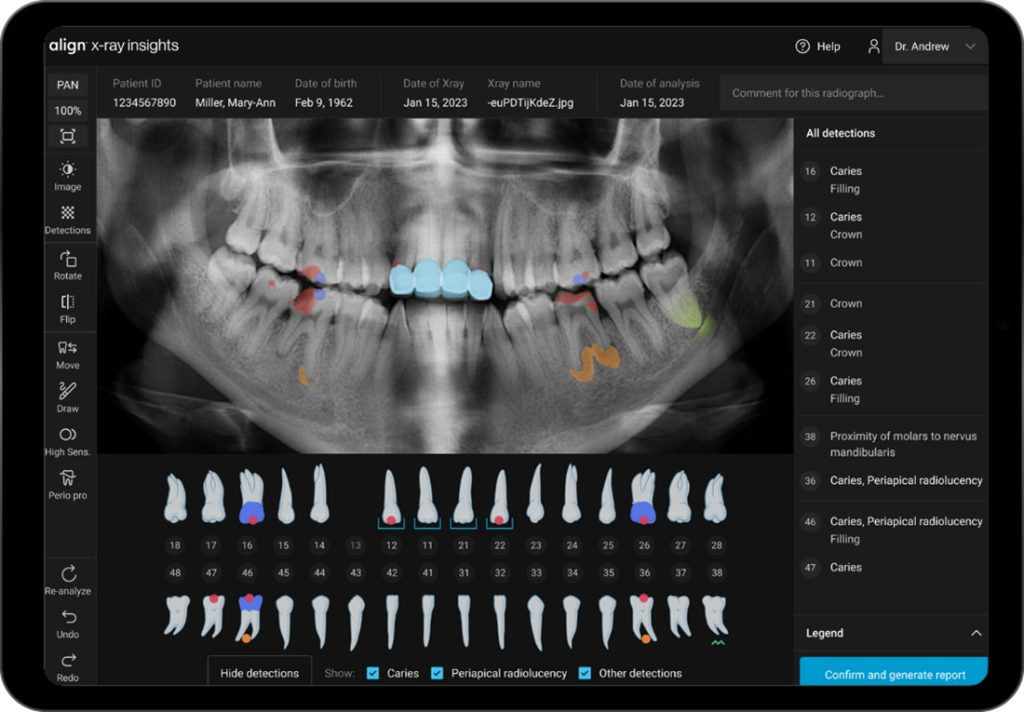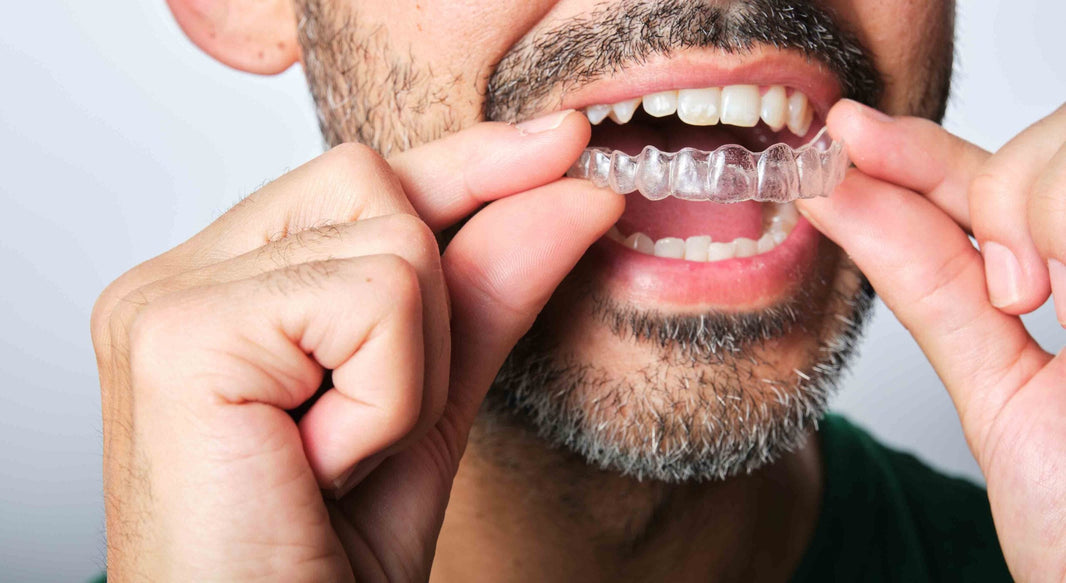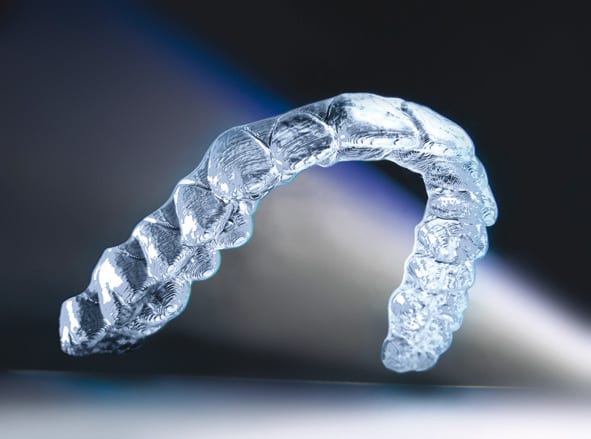Bruxism is a common but often overlooked condition that involves involuntary teeth grinding or jaw clenching, typically during sleep. It can lead to severe enamel wear, gum recession, jaw tension, and persistent facial discomfort. If left untreated, bruxism may contribute to more serious complications like temporomandibular joint disorders (TMD), migraines, and disrupted sleep. This guide explores what causes bruxism, the symptoms to watch for, and how to treat or manage the condition effectively.
Table of contents
Understanding Teeth Grinding
What Is Bruxism?
Many individuals don’t realize they have bruxism until a dentist identifies the signs. Because it often occurs during sleep, damage can accumulate gradually. Recognizing the symptoms early can help prevent long-term consequences.
Key indicators of potential bruxism include:
Flattened, chipped, or cracked teeth without a clear cause
Jaw soreness, especially upon waking
Increased tooth sensitivity due to enamel erosion
Facial pain radiating toward the ears or temples
Causes of Teeth Grinding and Bruxism
Signs of Teeth Grinding
Bruxism involves clenching or grinding the teeth, most often during sleep. Left unaddressed, it can result in enamel damage, jaw inflammation, and chronic conditions such as TMD. The three most common contributors to bruxism are emotional stress, sleep disorders like apnea or snoring, and certain medications—particularly SSRIs. Identifying the root cause is crucial to effective treatment.

What deficiency causes bruxism?
Some individuals may not realize they're grinding their teeth until symptoms become painful. A dentist might detect it during a routine exam by identifying irregular enamel wear or fractures. In some cases, bruxism is linked to nutritional deficiencies—notably magnesium or vitamin B5. Magnesium supports muscle function and sleep quality, while B5 plays a role in stress regulation. A blood panel can determine whether these deficiencies are contributing factors.

How to get a bruxism diagnosis?
While self-diagnosis is possible based on symptoms, a dentist or orthodontist is best equipped to evaluate damage and recommend treatment. This typically involves a bite examination, muscle palpation, and a review of nighttime habits.
What are the diagnostic criteria for bruxism?
Diagnosis generally includes a clinical exam and possibly imaging. Dentists look for signs like tooth wear, restricted jaw movement, or structural TMJ issues. In some cases, patients are referred to sleep specialists or behavioral health providers when conditions like sleep apnea or anxiety are suspected.
Do dentists diagnose bruxism the same way in every case?
Diagnosis can vary based on symptom severity and whether grinding occurs during the day or night. Some patients may only need a clinical exam, while others require imaging or sleep studies. Dentists also consider lifestyle factors such as stress levels, stimulant use, and medication history.

What does bruxism look like?
Can you have bruxism without knowing it?
Yes. Sleep bruxism often goes unnoticed by the patient. Subtle signs like enamel wear, morning jaw tightness, or reports of nighttime grinding by a partner may be the first indicators. Early symptoms might seem mild, but they can escalate without proper management.
What health problems can bruxism lead to?
Bruxism can cause a range of complications, from dull headaches and jaw soreness to pain extending into the neck and shoulders. Over time, repeated clenching may lead to TMD, resulting in joint clicking, restricted movement, and chronic discomfort.
Does bruxism change your face shape?
Can bruxism cause permanent damage?
Yes. Not all cases show visible damage initially. Early symptoms might include muscle tension or jaw soreness. Over time, continued grinding can lead to enamel loss, cracked teeth, and even changes in facial structure due to hypertrophy of the masseter muscle.
What risk factors make bruxism worse?
Several factors can exacerbate bruxism, including emotional stress, poor sleep hygiene, and certain medications or stimulants. Lifestyle habits like excessive caffeine or alcohol intake and untreated sleep apnea are also linked to increased grinding.
Most Effective Treatments for Bruxism
Effective bruxism management often involves a multi-disciplinary approach. Dentists, behavioral therapists, physical therapists, and sleep specialists may work together to reduce symptoms and prevent complications. .
Treatment for Teeth Grinding
Treatment options include:
Custom night guards to protect teeth and reduce bite force
Behavioral therapy to address anxiety and contributing habits
Medications like muscle relaxants or antidepressants
Physical therapy for jaw exercises and massage
Sleep studies to diagnose coexisting conditions like apnea
Curing Teeth Grinding
Many providers now offer long-term support and follow-up care for bruxism, especially in cases of sleep-related clenching or TMD. Comprehensive care may include coordination with physical therapists, sleep specialists, and behavioral health professionals for ongoing symptom management.
Managing Jaw Issues from Bruxism
A structured care plan can significantly reduce bruxism symptoms. Whether you’re just beginning treatment or already using a mouthguard, the following checklist can help guide your care.
Bruxism Care Starter Checklist:
Schedule a comprehensive dental exam
Get fitted for a custom night guard or splint
Evaluate lifestyle triggers and consider a sleep apnea screening
Follow up regularly to monitor jaw and tooth condition
Taking these steps shows your care team that you’re ready to manage your condition with intention—and committed to reducing long-term oral strain.
Teeth Clenching
Many patients don’t realize they’re clenching until symptoms appear. Awareness of habits, managing triggers, and following your provider’s plan are key to reducing nighttime grinding.
Relaxing your Jaw at Night
Wearing a custom occlusal guard overnight can protect enamel and reduce jaw tension.
Additional strategies include:
Using a warm compress before bed
Performing jaw stretches and facial massage
Logging symptoms for follow-up evaluation
Cleaning and inspecting the mouthguard nightly
Can Magnesium Help?
Magnesium may aid in reducing jaw clenching by supporting muscle relaxation and lowering stress levels.
Patients are encouraged to:
Discuss stress and lifestyle changes with their provider
Improve sleep hygiene (less screen time, dim lighting)
Reduce intake of caffeine, alcohol, and tobacco
Consider supplementation after medical consultation
How do you permanently stop bruxism?
Bruxism management requires a long-term approach rather than a single permanent fix. Custom-fitted night guards can shield your teeth from further damage. Reducing emotional stress through mindfulness, therapy, or regular exercise often helps limit clenching. Making changes to your daily habits—like limiting caffeine, improving sleep hygiene, or avoiding excessive chewing—can also play a role. In more advanced cases, dentists may suggest medications or muscle relaxant injections such as Botox to reduce jaw muscle activity.
Can you reverse damage from bruxism?
While you can’t naturally undo enamel loss or repair fractures from grinding, modern dentistry offers solutions to restore both function and appearance. Preventive measures like using a night guard can stop further damage, but existing issues like chips or excessive wear typically require restorative treatments from a dental professional.
Can bruxism cause permanent damage?
Yes. When left untreated, chronic teeth grinding can lead to irreversible dental complications. It may crack or weaken teeth, wear down enamel, and increase your risk of gum disease or tooth loss. Severe cases may also affect your jaw joint (TMJ), resulting in long-term discomfort or limited mobility.
How to fix teeth after bruxism?
To restore teeth worn down by bruxism, dentists typically recommend solutions like dental crowns, bonding with composite resin, or porcelain veneers to rebuild structure and appearance. Once restorative work is complete, ongoing protection with a custom night guard is crucial to avoid repeat damage.
How can I fix bruxism naturally?
To manage bruxism without medication, start by addressing the triggers. Stress management techniques like breathing exercises, yoga, or regular movement can help relax the jaw. Avoiding evening stimulants such as caffeine or nicotine may reduce nighttime clenching. Consistent sleep routines, open communication with your partner about sleep disturbances, and routine dental checkups all support a natural approach to prevention.
Conclusion
Diamond Braces is a premier orthodontic provider specializing in braces, Invisalign, and retainers for children, teens, and adults. The practice delivers expert orthodontic care for patients experiencing bruxism (teeth grinding) and related bite alignment issues. By addressing underlying malocclusions and improving jaw balance, Diamond Braces helps reduce the strain that contributes to bruxism—protecting teeth from excessive wear and supporting long-term oral health through personalized treatment plans.






